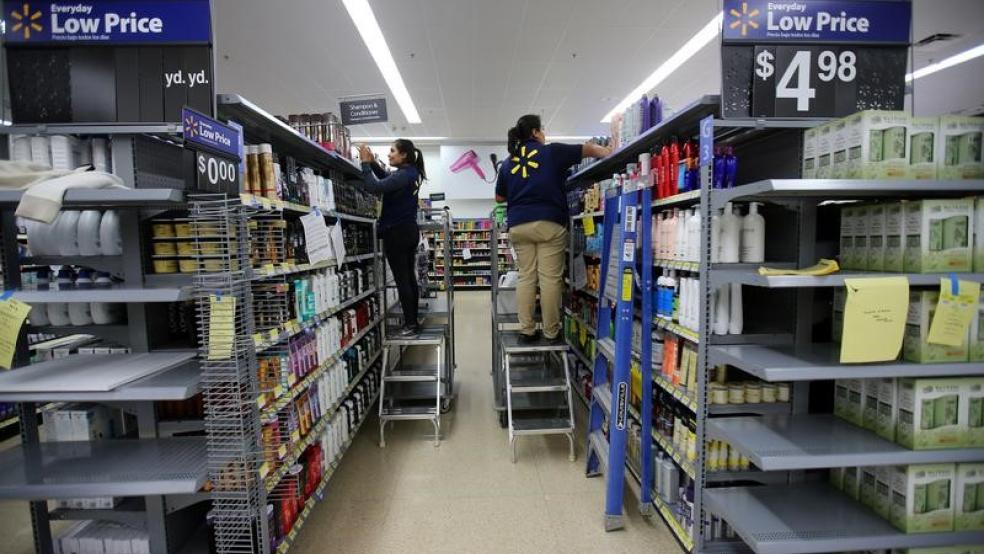While 2016's anemic growth level isn't an automatic disqualifier for an interest rate increase, the bar just got a little higher.
Friday's gross domestic product reading fell below even the dimming hopes on Wall Street. The 1.2 percent growth ratein the second quarter combined with a downward revision to the first three months of the year to produce an average growth rate of just 1 percent.
Related: Will an Upbeat Federal Reserve Burst the Market Bubble?
In total, it was far below the Wall Street forecast of 2.6 percent second-quarter growth and didn't lend a lot of credence to a Fed statement earlier this week that sounded more confident on the economy. (The Atlanta Fed was much closer, forecasting 1.8 percent.)
In short, they are not numbers upon which a rate hawk would want to hang one's hat.
"We're tired of talking about rate hikes when it's not going to happen for a while," Diane Swonk of DS Economics told CNBC. "I really think the Fed is sidelined until the end of the year.
Or, perhaps, longer.
Market expectations for the next Fed hike had been sliding as the release of the GDP report got closer, and they plunged afterward. The fed funds futures market Friday morning was indicating just a 34.4 percent chance of a rate rise this year, with the next move pushed out until well into 2017. A day earlier, the futures market had moved to just over 50 percent for a 2016 move. The Fed last hiked in December 2015, which was the first move after eight years of keeping the overnight rate near zero.
Related: Home Prices Hit an All-Time High: Is This Another Bubble?
To be sure, GDP growth is just one input for the central bank. Ostensibly, the Fed's mandate is to ensure full employment and price stability, and it has come close to achieving the former while continually falling short of the latter.
Friday's data, despite the weak headline number, offered some hope.
The GDP miss came in good part because of a tumble in inventories, which subtracted 1.16 percentage points. At the same time, consumer spending showed a robust 4.2 percent gain, the best number in a year and a half. Separately, the employment cost index, a Labor Department measure that is said to be watched closely by Fed Chair Janet Yellen, rose at a 0.6 percent quarterly rate, in line with expectations and reflecting an annualized increase of 2.3 percent in employee compensation costs.
But the Fed has been warning about weak business investment, and Friday's data showed those concerns were well-founded.
Business investment fell 2.2 percent, its third consecutive quarterly decline. Gross private domestic investment tumbled 9.7 percent, and residential investment, which had been on the rise, reversed course and declined 6.1 percent, the first decrease since early 2014.
Those numbers act as a counterweight to the declining jobless rate, which is down to 4.9 percent.
"What is really worrying is that pace has still been enough to reduce the unemployment rate further, suggesting that the economy's potential growth rate could conceivably be close to zero," Paul Ashworth, chief U.S. economist at Capital Economics, said in a note. The headline jobless rate has been declining, in part, due to a generational low in labor force participation, suggesting that outside a decline in labor slack, there's little moving economic growth.
As a result of Friday's news, Capital sliced its full-year GDP expectation from 2 percent to 1.5 percent.
In a year when the Fed was supposed to be on an orderly rate-hike pace of one per quarter, Wall Street now is talking about an economy that's not going anywhere and a central bank that will follow suit.
"The U.S. consumer is the only thing keeping the U.S. economy out of a recession and we've heard just this week the worries over auto sales and weakness for restaurants," Peter Boockvar, chief market analyst at The Lindsey Group, said in a note. "I'm not calling for a recession, but will zero to slightly negative growth feel much different than 1 percent growth?"
This article originally appeared on CNBC. Read more from CNBC:
Real estate buying habits linked to people's Facebook behavior




